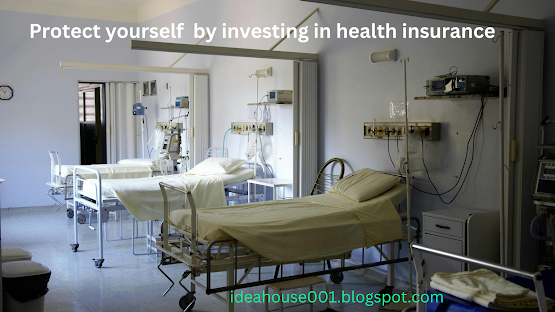In a fast moving world where unforeseen medical emergencies can strike without notice at any moment, having health insurance cannot be defined a luxury item of your precious life. Therefore, it is a necessity aspect that can never be overlooked at any stage of your life. However, what is happening for millions of individuals worldwide, the reality of life without health coverage is all too familiar. The consequences connected with being uninsured always extend far beyond financial strain, permeating every aspect of an individual's well-being. From limited access to quality healthcare to the looming threat of medical debt, the ramifications of lacking insurance are profound and far-reaching.
Impact on Health
Outcomes:
One of the most
glaring consequences of not having health insurance is the detrimental affect
it can have on health outcomes. Without insurance, individuals are less likely
to seek preventive care or receive timely treatment for acute conditions. This
delay in seeking medical attention can result in exacerbated health issues,
leading to increased morbidity and mortality rates. Chronic conditions may go
undiagnosed or untreated, escalating into more serious health complications
over time. As a result, the uninsured face higher risks of poor health outcomes
and shorter life expectancy compared to their insured counterparts.
Financial Burden:
Beyond the physical
toll, the financial burden of being uninsured weighs heavily on individuals and
families alike. Medical expenses can quickly spiral out of control, leaving the
uninsured saddled with exorbitant bills they are unable to pay. Emergency room
visits, hospitalizations, and necessary treatments can plunge individuals into
medical debt, jeopardizing their financial stability and future well-being.
Moreover, the absence of insurance often means paying higher out-of-pocket
costs for medical services, further exacerbating the financial strain on
already vulnerable populations.
Limited Access to
Care:
Access to quality
healthcare is another casualty of lacking health insurance. Uninsured
individuals may struggle to find healthcare providers willing to treat them or
encounter long wait times for appointments. Moreover, without insurance
coverage, many essential services, such as prescription medications, diagnostic
tests, and specialist consultations, may be financially out of reach. This
limited access to care not only impedes individuals' ability to manage their health
effectively but also perpetuates health disparities, disproportionately
affecting marginalized communities with higher uninsured rates.
Avoidable Health
Crises:
The absence of
health insurance can transform manageable health issues into full-blown crises.
Without access to preventive care and early intervention, treatable conditions
may progress to advanced stages, necessitating more invasive and costly
interventions. Preventable diseases, such as diabetes, hypertension, and
certain cancers, may go undetected until they reach critical levels, resulting
in avoidable suffering and diminished quality of life. The ripple effects of
untreated health conditions extend beyond the individual, straining healthcare
systems and communities as a whole.
Psychological Toll:
Living without
health insurance can exact a profound psychological toll on individuals,
exacerbating stress, anxiety, and feelings of vulnerability. The constant fear
of falling ill without financial protection looms large, casting a shadow over daily
life. Moreover, the stigma associated with being uninsured can compound these
emotional struggles, leading to feelings of shame and isolation. The mental
health consequences of lacking insurance further underscore the urgent need for
comprehensive healthcare reform to ensure equitable access to care for all.
In conclusion, the
consequences of not having health insurance are manifold and severe. From
compromised health outcomes to insurmountable financial burdens, the
ramifications of lacking coverage permeate every facet of individuals' lives.
As we strive towards a more equitable healthcare system, it is imperative to
address the underlying barriers that perpetuate uninsurance and prioritize
access to affordable, comprehensive coverage for all. Only by ensuring that
every individual has access to the care they need can we mitigate the
devastating impact of living without health insurance and pave the way towards
a healthier, more resilient society.







0 Comments